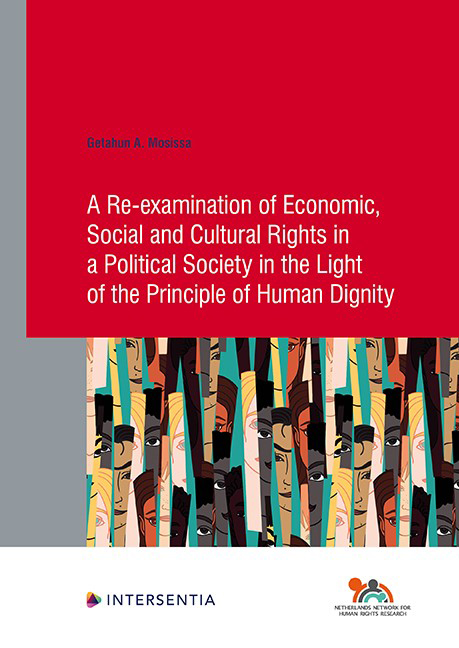Book contents
- Frontmatter
- Acknowledgments
- Dedication
- Contents
- Acronyms
- Chapter 1 General Introduction
- PART ONE THE CONCEPTIONS AND THEORIES OF HUMAN RIGHTS
- PART TWO THE LEGAL OBLIGATIONS OF THE STATE UNDER ESC RIGHTS IN THE LIGHT OF INTERNATIONAL ESC RIGHTS JURISPRUDENCE
- Bibliography
- Samenvatting
- Curriculum Vitae
- Human Rights Research Series
Chapter 2 - The Conceptions of Human Rights
Published online by Cambridge University Press: 25 May 2021
- Frontmatter
- Acknowledgments
- Dedication
- Contents
- Acronyms
- Chapter 1 General Introduction
- PART ONE THE CONCEPTIONS AND THEORIES OF HUMAN RIGHTS
- PART TWO THE LEGAL OBLIGATIONS OF THE STATE UNDER ESC RIGHTS IN THE LIGHT OF INTERNATIONAL ESC RIGHTS JURISPRUDENCE
- Bibliography
- Samenvatting
- Curriculum Vitae
- Human Rights Research Series
Summary
INTRODUCTION
As indicated in Chapter one, the review of different academic writings reveals that there are varying conceptions of human rights in human rights discourse. There seems to be two basic problems behind the existence of the various conceptions of human rights. One underlying problem has by and large to do with the disagreement on the notion and implications of human rights. This problem is further complicated by the usage of various qualitative terms as ‘fundamental’, ‘basic’, ‘legal’, ‘constitutional’ and ‘human’ in association with the term ‘right’ which, in turn, suggest in one way or another the existence of different ‘classes’ or categories of human rights both in terms of their normative essence and hierarchical importance. The other problem concerns the disagreement on the normative justification of human rights. Both of these problems are essentially interlinked but, for ease of discussion, the first problem is discussed in this Chapter and the second problem will be addressed in the next Chapter. It has almost become a conventional wisdom that no two academics can have a similar view of the notion and implications of human rights. This problem has significantly inhibited the progress of academic discourse on human rights both generally and in relation to ESC rights. The discussion in this Chapter has accordingly two main objectives. First, it reviews the different conceptions of human rights and their implications on the normative status and significance of ESC rights. To this end, it identifies and discusses two major conceptions of human rights underlying the classification of human rights into different categories or classes: the hierarchal and dichotomised conceptions. It particularly examines the bases and limitations of these conceptions in explaining the holistic idea of human rights. Second, it provides a counter-argument against these views by relying on a more comprehensive and better alternative conception of human rights, the triadic conception put forward by MacCallum and Alexy.
THE HIERARCHICAL CONCEPTION
The hierarchical conception of human rights is essentially rooted in or flows from the legal positivist (constitutionalist) view of the legal system whereby the constitution is considered to be the basic law and at the highest apex in the hierarchy of laws within a given legal system. Some even go to the extent of claiming that the national constitution is hierarchically superior to international law.
- Type
- Chapter
- Information
- A Re-examination of Economic, Social and Cultural Rights in a Political Society in the Light of the Principle of Human Dignity , pp. 25 - 48Publisher: IntersentiaPrint publication year: 2020

